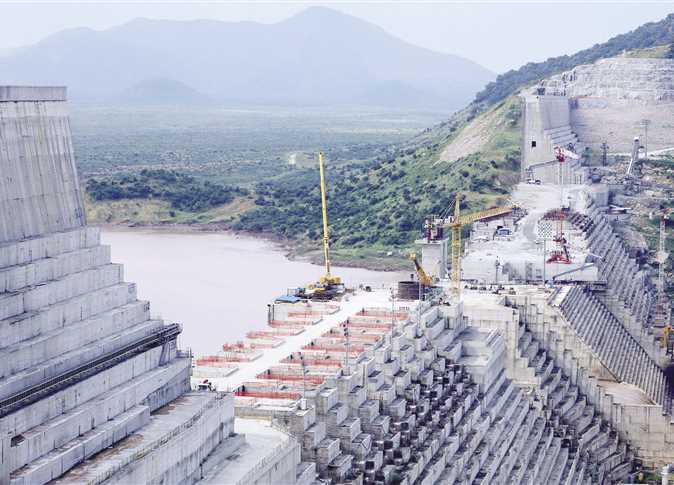
Egypt’s Foreign Ministry announced on Friday that the final agreement concerning rules for filling and operating the contentious Grand Ethiopian Renaissance Dam (GERD) will be signed between Egypt, Ethiopia, and Sudan before the end of February, following rounds of negotiations in Washington, DC.
The Egyptian Foreign Ministry said in a statement that the US announced it was about to finalize the GERD agreement in cooperation with the World Bank, to present it to the three countries within the next few days.
The statement came after the conclusion of negotiations between the foreign ministers of Egypt, Sudan and Ethiopia in Washington on Thursday, under the auspices of the US Treasury Secretary Steven Mnuchin and World Bank representatives.
The statement pointed out that the recent negotiations focused on regulations related to operating and filling the Renaissance Dam in various stages, as well as operating regulations during periods of drought, in case it coincides with the process of filling the dam, in order to protect the interests of downstream countries.
Negotiations discussed long-term operating rules and the coordination mechanism between the three countries, as well as a binding mechanism for resolving any disputes that may arise over the interpretation or application of the agreement.
The Egyptian Foreign Ministry expressed its appreciation for the role of the US administration and the World Bank in reaching a comprehensive agreement that would take into account the interests of the three countries.
The ministers of the three countries held earlier meetings in Washington between January 13 and 15 to discuss the results of four rounds of negotiations held under the auspices of the World Bank and the United States.
The last round of talks held in the region in early January had failed to reach a final agreement on filling and operating the new dam in Ethiopia, construction of which began along the Blue Nile in 2011, ahead of an earlier January 15 deadline.
Egypt’s government blamed Ethiopia’s “intransigence” on the failure of the talks, held in Addis Ababa, and has denied that Egypt was under pressure to waive some of its demands in the earlier January negotiations over the Renaissance Dam held in Washington, DC.
Egypt, which relies considerably on fresh water from the Nile, has voiced concerns that the GERD would negatively impact the country’s water supply in light of the country’s growing population, which officially reached 100 million this week.
Ethiopia, on the other hand, has stressed the importance of the project to bolstering the economy in the country, where more than half of the population currently lives without access to electricity, according to a report from AFP.




